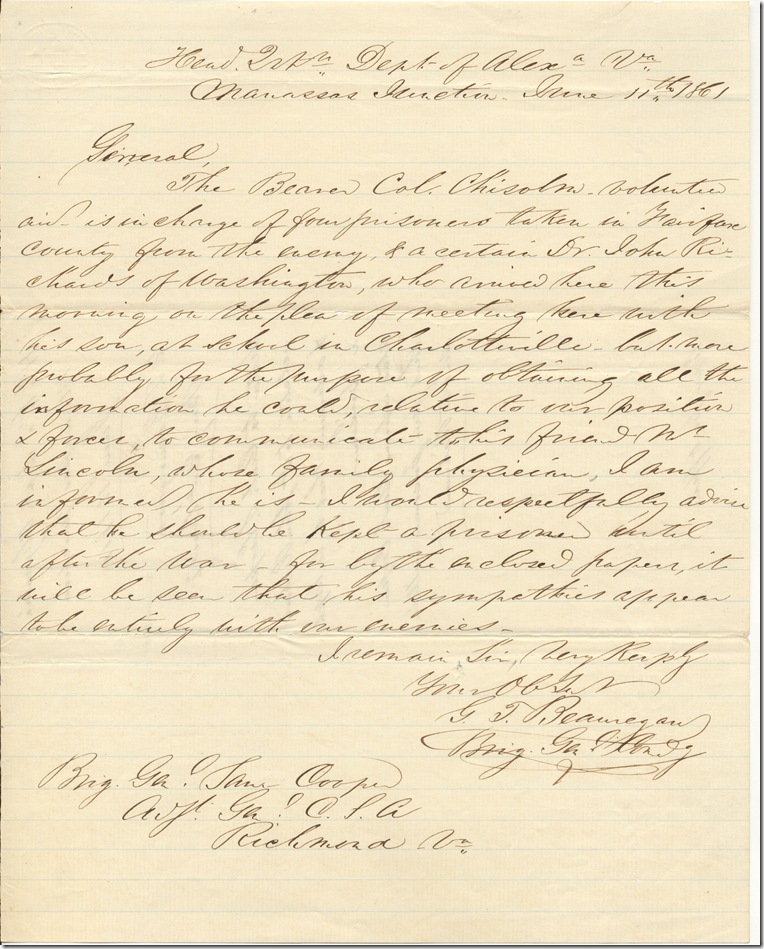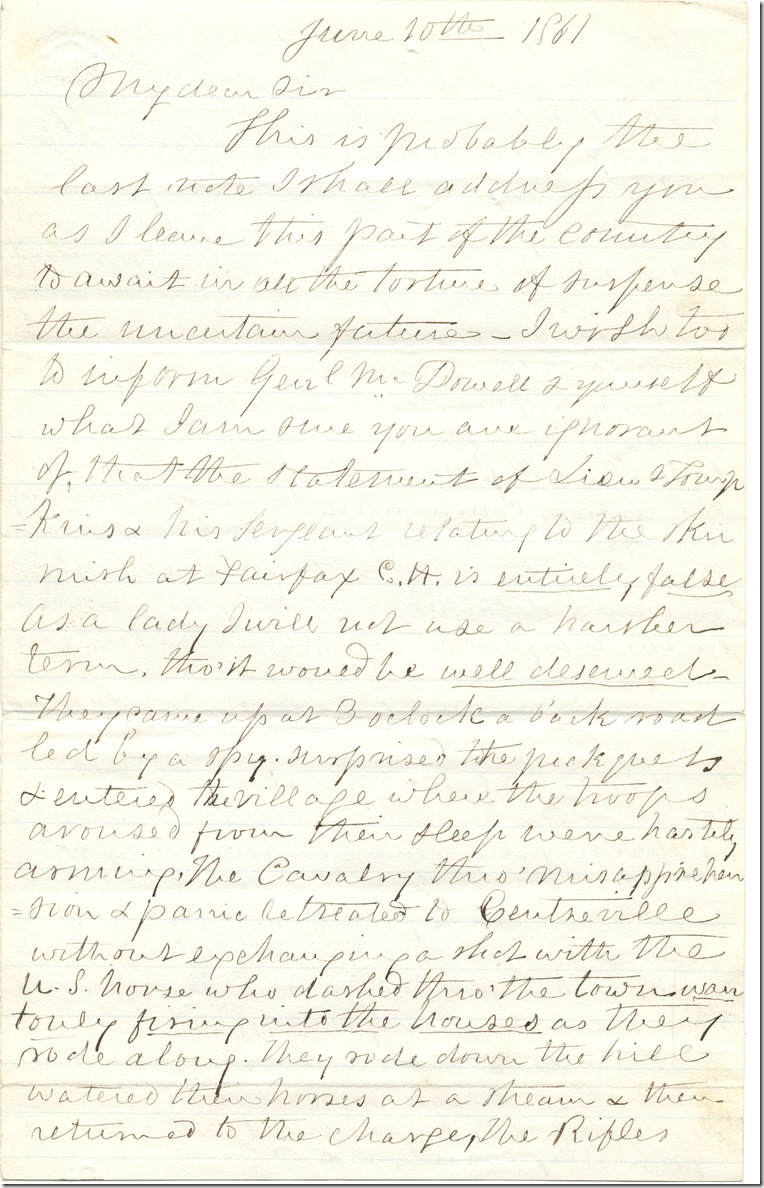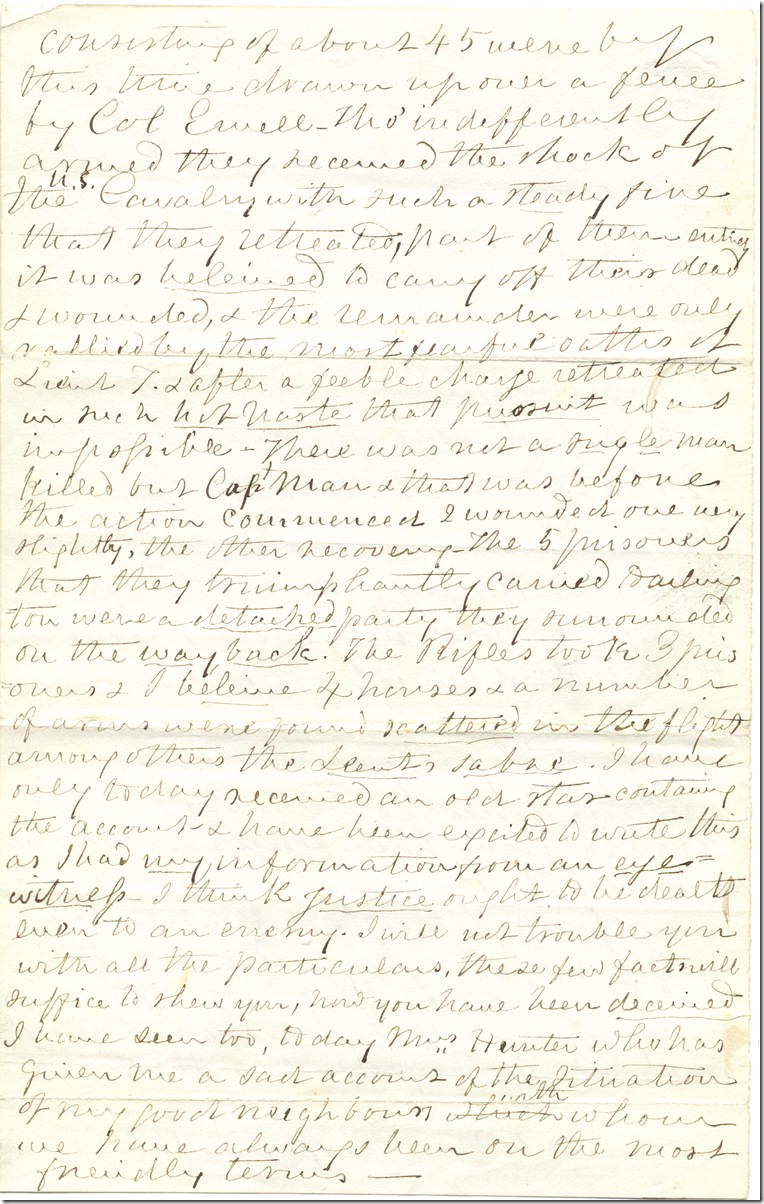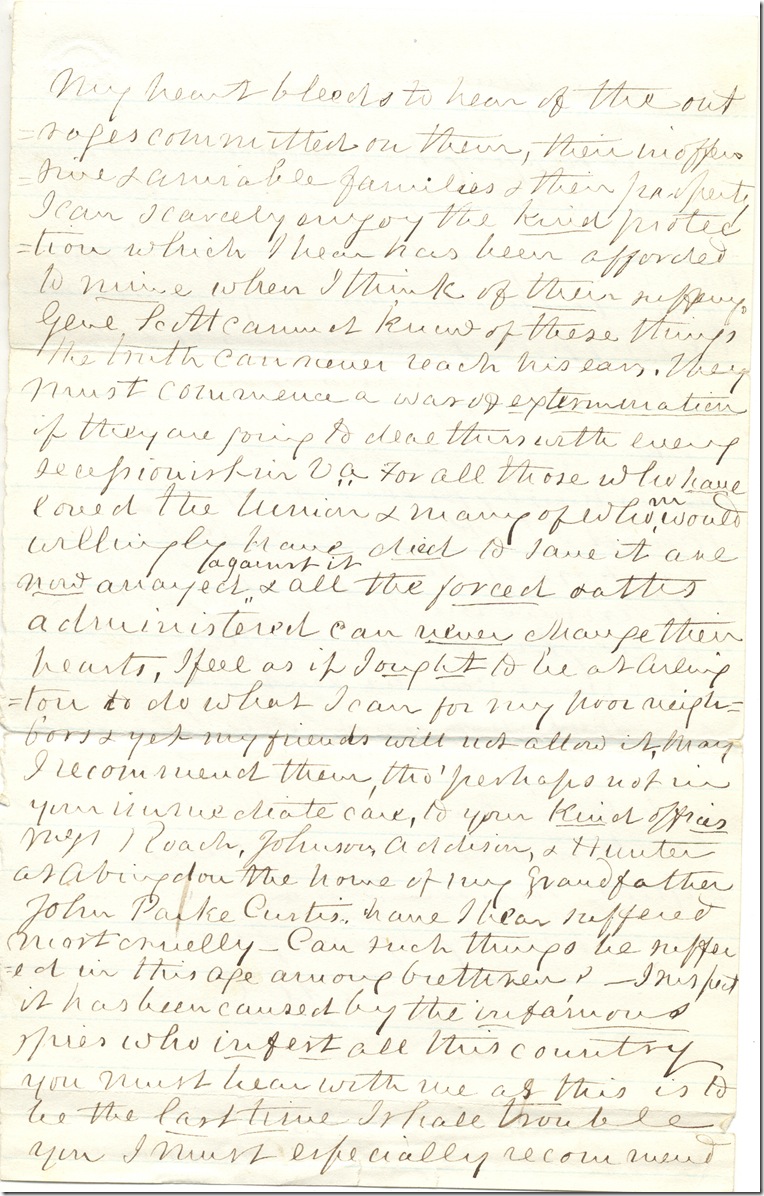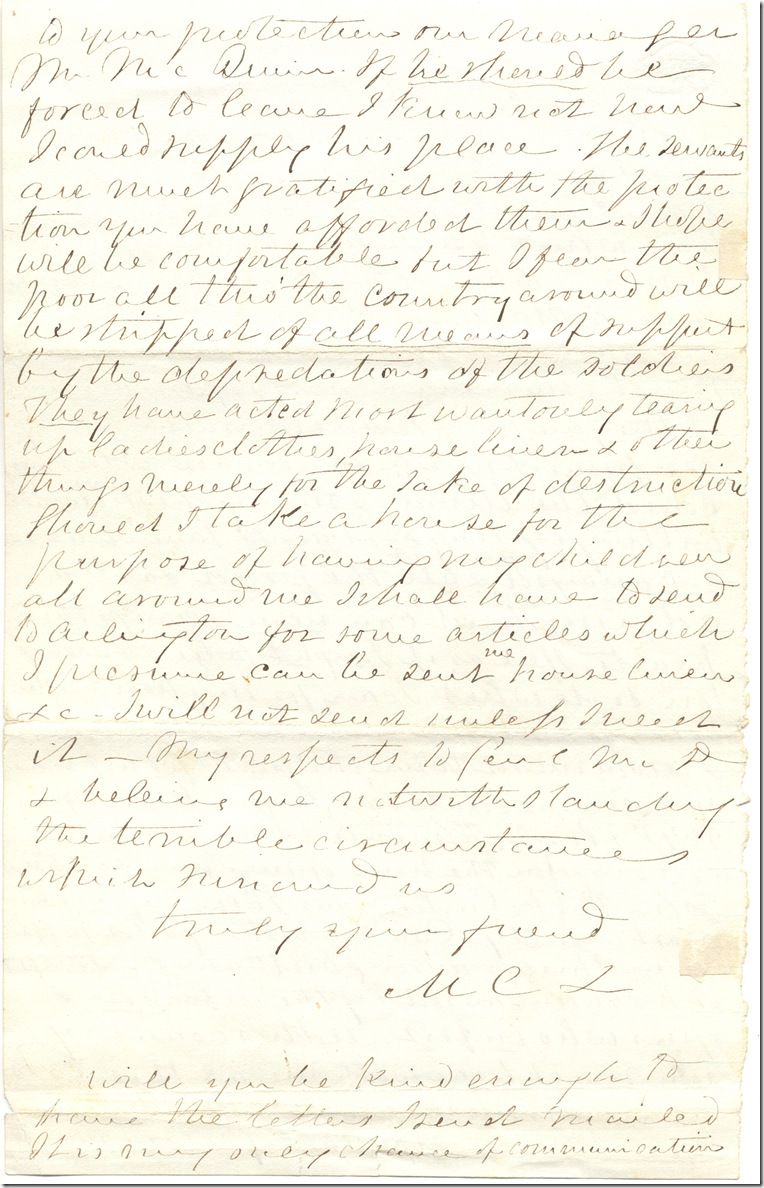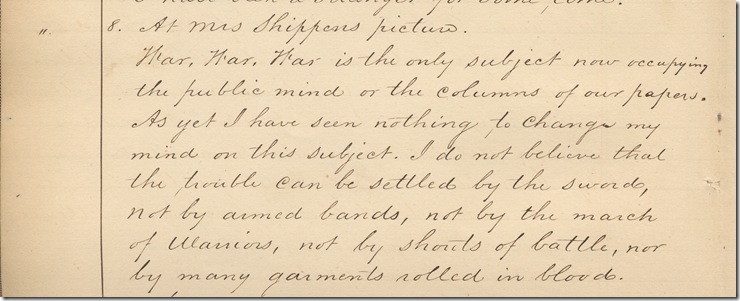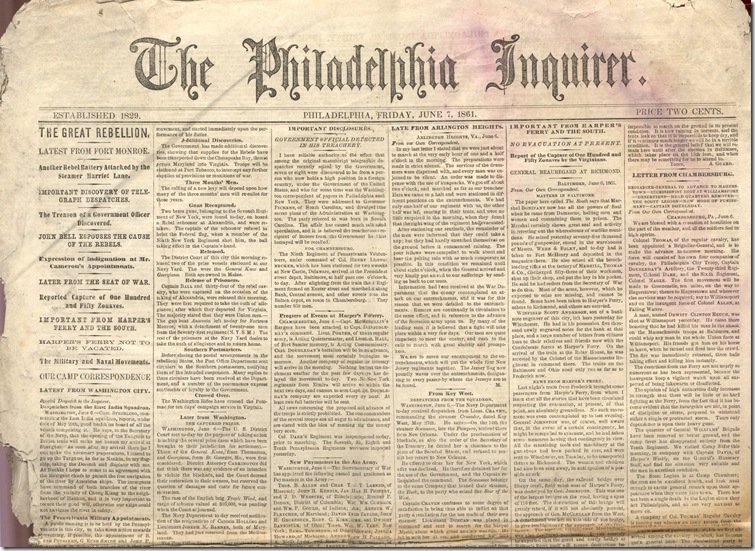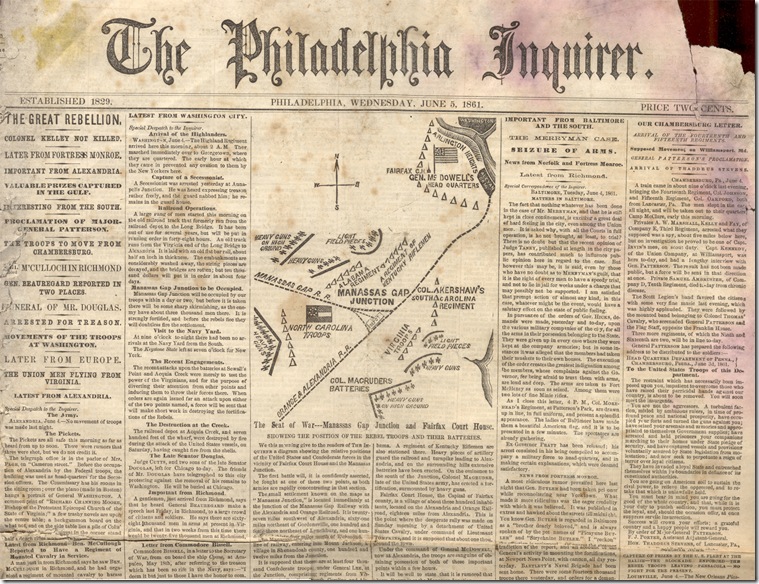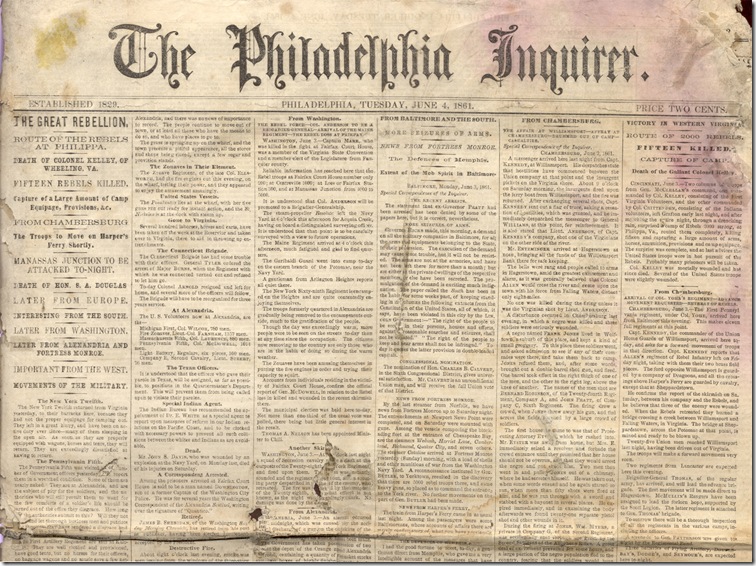Pierre Gustave Toutant Beauregard was a Louisiana-born general of the Confederate States Army. He had graduated second in his class from West Point in 1838 and was an admirer of Napoleon. He achieved fame early in the Civil War for commanding the Fort Sumter bombardment and as the victor of the first battle of Manassas. He later served in the Western Theater (including Shiloh and Corinth), Charleston, and the defense of Richmond, but his career was hampered by friction with Jefferson Davis and other generals.
Transcript:
Head Qrts. Dept. of Alexa. Va.
Manassas Junction. June 11th 1861
General
The Bearer Col. Chisolm, volunteer aid, is in charge of four prisoners taken in Fairfax Country from the enemy, & a certain Dr. John Richards of Washington, who arrived here this morning on the plea of meeting here with his son, at school in Charlotteville- but more probably for the purpose of obtaining all the information he could relative to our position & force, to communicate to his friend Mr. Lincoln, whose family physician I am informed he is- I would respectfully advise that he should be kept a prisoner until after the war- for by the enclosed papers, it will be seen that his sympathies appear to be entirely with our enemies-
I remain Sir Very Resp’y
Your Obs.
G. T. Beauregard
Brig. Genl Comdg
Citation:G. T. (Gustave Toutant) Beauregard (1818-1893), autograph letter signed to Samuel Cooper. Manassas Junction, Va. 11 June 1861. AMs 356/3
